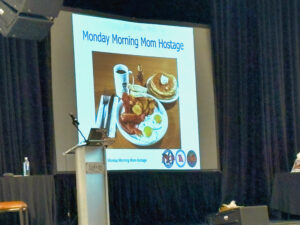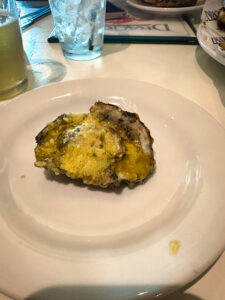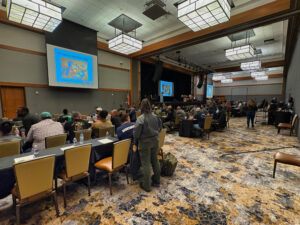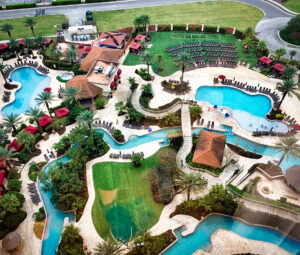During the first week of June, I had the privilege of speaking at the Louisiana Association of Crisis Negotiators (LACN) annual conference, held at the beautiful L’Auberge Casino Resort in Lake Charles, Louisiana. Surrounded by dedicated professionals and the relaxed charm of the Gulf Coast, it was an energizing and impactful experience—both professionally and personally.
My presentation focused on a powerful and emotionally charged case study involving a mother who was taken hostage by a suspect following a chaotic overnight crime spree. The incident was raw, dynamic, and full of lessons in real-time crisis negotiation, emotional regulation, and tactical patience. Sharing this case allowed attendees to walk through the evolving nature of the event—from the suspect’s unpredictable behavior to the strategies used to de-escalate the situation and ultimately resolve it peacefully.
The audience was engaged and thoughtful. Many were veteran negotiators, officers, and mental health professionals who could relate to the tension and stakes of a hostage crisis. The feedback I received highlighted how relatable and instructive the case was, especially in underscoring the importance of empathy, rapport-building, and reading behavioral cues during a volatile negotiation.
I was in great company. Among the other notable presenters was Malcolm White of the Texas Rangers, whose experience and insights into high-risk negotiations were both impressive and inspiring. Several other speakers from across Louisiana delivered presentations covering topics such as jail negotiations, psychological profiles of barricaded subjects, and advances in negotiation tech and tools. The level of expertise shared at this conference speaks to the strength and unity of the crisis negotiation community across the region.

Outside the conference room, the experience was equally memorable. The L’Auberge Casino Resort offered a comfortable and scenic backdrop for networking and relaxation. Between sessions, we’d take in the resort’s river views, enjoy the poolside atmosphere, or grab a quick coffee to keep up with the pace of a packed schedule.
One of the highlights of the trip was dinner at Drago’s Seafood Restaurant. Their legendary charbroiled oysters lived up to every bit of the hype. I also tried the fried gator bites, Cajun chicken gumbo, and BBQ shrimp—a feast of bold Louisiana flavors that added to the overall experience of being deeply immersed in the culture of the state. Food has a way of bringing people together, and that dinner was no exception.

Of course, no conference is complete without the camaraderie of friends and fellow professionals. I got to reconnect and hang out with my friends from the LACN board—Rachel, Donnie, and Patrick—who continue to be a source of support, sharp thinking, and plenty of laughs. Whether we were swapping stories, catching up on each other’s work, or simply enjoying good food and conversation, the fellowship reminded me why this community is so special.

Events like the LACN conference are vital for more than just training—they’re about building relationships, exchanging hard-earned lessons, and reminding each other why we do what we do. The work of a crisis negotiator is demanding and often unseen, but gatherings like this provide the encouragement and tools to return to the field better equipped and more connected.

I left Lake Charles feeling grateful, inspired, and even more committed to the craft of crisis negotiation. A big thank-you to the LACN board, the amazing speakers, and every attendee who contributes to making this profession stronger, smarter, and more human.
Until next time, Louisiana.
